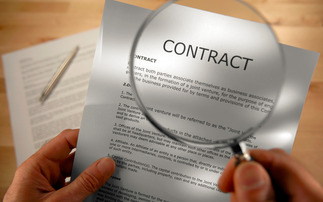The GMB union has called on The Pensions Regulator (TPR) to investigate AA which has seen its pension deficit more than double in just seven months.
By 31 July the combined deficit of its three defined benefit (DB) plans grew to £622m from just £296m in January 2016 on an IAS 19 accounting basis, an increase of 110%.
Combined liabilities increased from £2.1bn to £2.7bn during the same period, more than offsetting the rise in assets from £1.9bn to £2.1bn.
In its interim results published on 28 September, AA attributed the huge deficit increase on low yields from corporate bonds.
However, in a statement the union blamed it on the firm's management and said it would be looking to the trustees' role.
GMB regional organiser Paul Grafton said: "TPR must examine the role played by previous owners and get them to put some of the billions they made back into the AA workers' pension pot."
He added: "GMB will be looking into the role of the pension scheme trustees and whether they have been properly proactive in protecting the fund while money has flowed out of the organisation to the private equity owners and in interest payments to cover the debt mountain they landed on the organisation."
AA was bought by private equity owners in 2004 when CVC and Permira acquired it from Centrica in a £1.75bn deal. CVC, Permira and Charterhouse merged AA and Saga in 2008 in a £6.2bn mega deal to form Acromas Group but it was dissolved in 2014 when Saga was sold separately.
An AA spokesperson said: "The GMB are not our recognised union. Discussions between the AA Pension Trustees and the AA are ongoing regarding our pension scheme."
A spokesperson for TPR said: "We do not comment on individual cases or companies unless it becomes appropriate to do so."
In September Reuters reported AA could be considering a bulk annuity with an insurer. The AA spokesperson said the firm does not have a view on the proposal.









